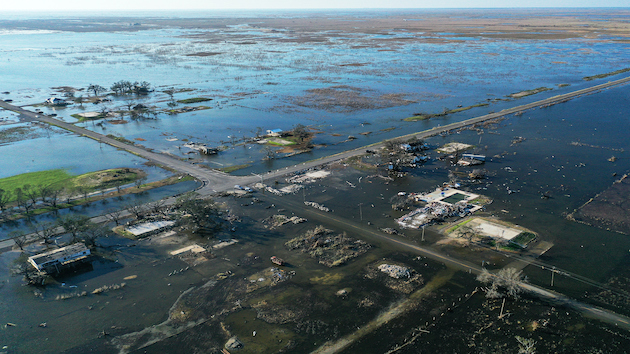(NEW YORK) — A new report from the World Bank highlights the growing risks of climate change across the world.
The new Groundswell report finds up to 216 million people across six regions from Sub-Sahara Africa to East Asia to Latin America could be forced to migrate within their countries by 2050, with the poorest and most climate-vulnerable affected.
In North Africa up to 9 percent of the population could be forced to move, Sub-Sarahan Africa up to 4 percent, and Latin America 2.6 percent.
“The Groundswell report is a stark reminder of the human toll of climate change, particularly on the world’s poorest—those who are contributing the least to its causes. It also clearly lays out a path for countries to address some of the key factors that are causing climate-driven migration,” said Juergen Voegele, Vice President of Sustainable Development, World Bank.
The first report was released in 2018 and covered sub-Saharan Africa, South Asia, and Latin America.
That report projected climate change could force up to 143 million people in those regions to migrate.
The updated report now includes East Asia and the Pacific, North Africa, and Eastern Europe and Central Asia.
According to the report, countries in Sub-Sahara Africa are the most at risk to see climate impacts with its fragile drylands, exposed coastlines, and dependence on rain-fed agriculture. North African countries will see the greatest percentage of migrants because of severe water shortages and rising sea levels.
The first migrant hotspots could start emerging by 2030 and will continue to grow by 2050. Water availability, sea-level rise, and crop productivity are some of the reasons people will have to migrate.
The report does find that early action on reducing greenhouse gas emissions could slow climate-based migration up to 80 percent.
Similar to the first Groundswell report, the updated version provides a series of policy recommendations, including cutting greenhouse gases immediately; planning for internal climate migration in developmental planning; investing in better understanding the drivers behind internal climate migration.
Copyright © 2021, ABC Audio. All rights reserved.


